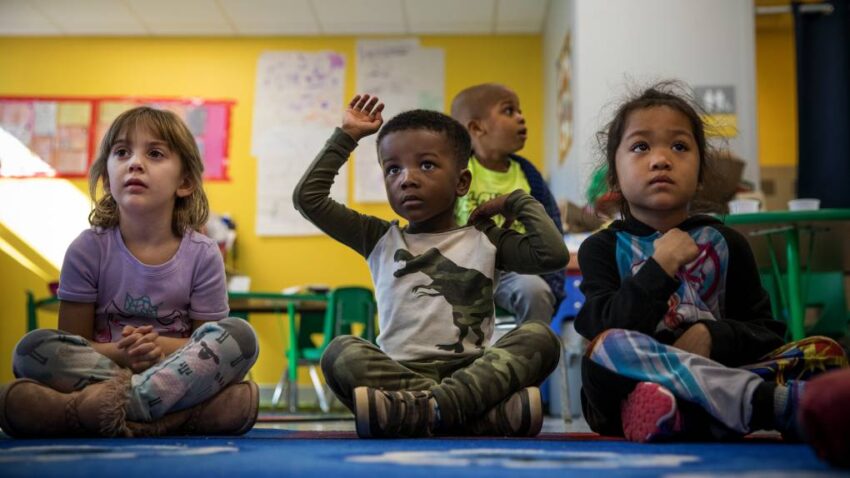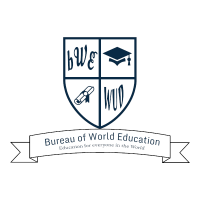
The end result was an much more restricted variety of slots for city-funded preschool, and the town officers had to determine the right way to pretty divvy up these slots. They resorted to a lottery system, randomly deciding on children who would get in.
Quick ahead 20 years later, and the economists Christopher R. Walters, Guthrie Grey-Lobe and Parag A. Pathak noticed this as a golden alternative to see how preschool can have an effect on folks’s lives. The truth that Boston’s college directors randomized who acquired admitted meant there have been two just about an identical teams of children with just one distinction: one group acquired an additional 12 months of training by going to preschool. That gave the researchers the chance to check and distinction the 2 teams of children and credibly see how children’ lives modified because of entering into preschool.
About 4,000 4-year-olds took half in Boston’s preschool lottery between 1997 and 2003. Walters, Grey-Lobe, and Pathak acquired knowledge on them from the Boston college system. After which they had been in a position to get further knowledge from different sources that gave them perception into ways in which the kids’s lives might need benefited from an extra 12 months of preschool training. These children at the moment are all twenty-somethings — a reality that ought to make you are feeling outdated.
According to different research that discover preschool has an enormous impact on children, Walters, Grey-Lobe and Pathak discover that the children fortunate sufficient to get accepted into preschools in Boston noticed significant adjustments to their lives. These children had been much less more likely to get suspended from college, much less more likely to skip class, and fewer more likely to get in hassle and be positioned in a juvenile detention facility. They had been extra more likely to take the SATs and put together for school.
Probably the most eye-popping results the researchers discover are on highschool commencement and faculty enrollment charges. The children who acquired accepted into preschool ended up having a high-school commencement fee of 70% — six proportion factors larger than the children who had been denied preschool, who noticed a commencement fee of solely 64%. And 54% of the preschoolers ended up going to varsity after they graduated — eight proportion factors larger than their counterparts who did not go to preschool. These results had been greater for boys than for women. And so they’re all of the extra outstanding as a result of the researchers solely regarded on the results of a single 12 months of preschool, versus two years of preschool (as President Biden is now proposing for the nation’s youth). Furthermore, in lots of circumstances, the lessons had been solely half a day.
Intriguingly, whereas attending preschool at age Four had clear results on these children’ whole lives, it didn’t enhance their efficiency on standardized assessments. These findings match into a big physique of analysis that implies the true worth of preschool helps little ones to develop “non-cognitive abilities,” like emotional and social intelligence, grit and respect for the principles.
“The mix of findings — that we do not see an affect on check scores, however we do see an affect on these behavioral outcomes and the chance of attending faculty — is in keeping with this concept that there is some form of behavioral or socio-emotional, non-cognitive affect from preschool,” says Christopher Walters, an economist at UC Berkeley who co-authored the research.
In different phrases, there’s rising proof that preschool can completely enhance children’ lives — nevertheless it’s not essentially as a result of it makes them smarter. It appears extra associated to creating them extra disciplined and motivated, which is simply as necessary (or maybe much more necessary) for his or her future livelihoods as how effectively they carry out on studying or math assessments.
The larger image
This newest research is not the primary to indicate the outsized results of offering a preschool training. The Nobel Prize-winning economist James Heckman has spent a few years finding out the outcomes of small, randomized experiments with preschool within the 1960s and 1970s. Probably the most well-known such experiment was The Perry Preschool Mission, which was carried out in Ypsilanti, Mich. This system offered two years of high-quality preschool for deprived 3- and 4-year-olds.
Heckman and his colleagues discovered that the Perry Preschool had seismic results on the children who participated. They had been a lot less likely to get arrested, go on welfare or be unemployed as adults. They earned significantly more. In a recent study, Heckman and his group discovered that even the children of the children who went to the Perry preschool had considerably higher outcomes in life.
All in all, Heckman and his group estimate that each greenback the Perry Preschool undertaking invested in children had a return on funding of 7-10% per 12 months, by elevated financial features for the children and decreased public spending on them by different social applications once they acquired older. That is a considerable return, equal to or larger than the typical annual return from the inventory market, and far larger than most different issues our authorities spends cash on.
Different preschool applications studied by Heckman and his colleagues have had even larger advantages. Within the 1970s, a few applications in North Carolina experimented with high-quality childcare facilities for teenagers. The facilities provided children aged zero to 5 training, medical checkups, and nutritious meals. Heckman and his group discovered these facilities delivered a 13 percent annual return on investment to the general public for each greenback they invested. This system helped Heckman develop what’s often called “the Heckman Curve,” which asserts that the federal government will get extra bang for the buck the sooner it supplies assets to teach folks. Educating toddlers, Heckman says, is rather more highly effective than educating high-schoolers, faculty college students, or adults in, for instance, job-training applications.
As astounding as Heckman’s findings about preschool have been, naysayers have lengthy questioned whether or not such results could possibly be replicated with bigger scale applications, just like the one President Biden is now proposing. This new research out of Boston, which seems at a large-scale program carried out throughout your complete metropolis, is one other brick within the rising edifice of proof that exhibits preschool is a worthy funding, not only for children, however for society total.
















